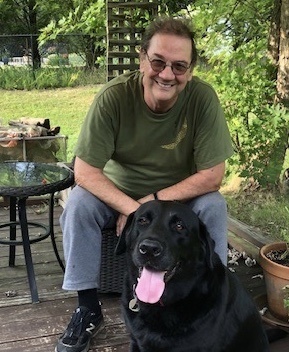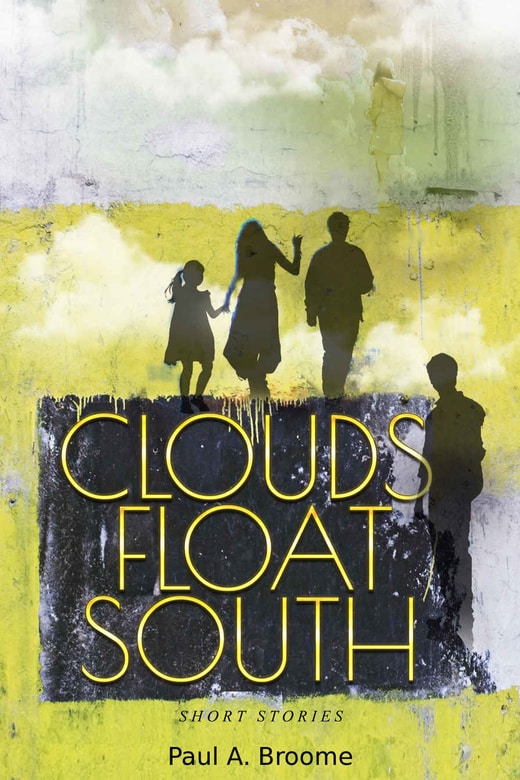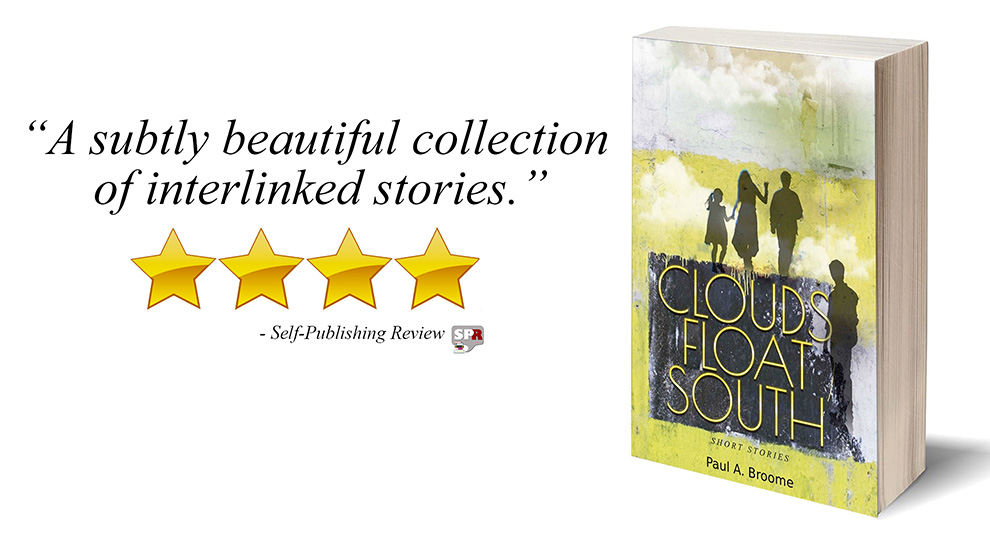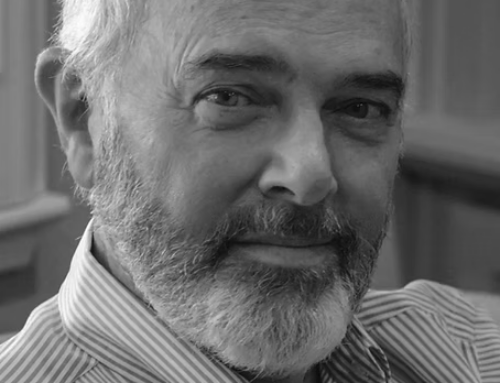 Paul A. Broome was born and raised in Nashville, Tennessee. After receiving his master’s degree in literature, he moved to Mississippi where he taught at Alcorn State University, an historically Black college in West Central Mississippi. Now retired, he lives and writes in Alabama with his wife and black lab and crazy tabby cat.
Paul A. Broome was born and raised in Nashville, Tennessee. After receiving his master’s degree in literature, he moved to Mississippi where he taught at Alcorn State University, an historically Black college in West Central Mississippi. Now retired, he lives and writes in Alabama with his wife and black lab and crazy tabby cat.
Tell us about your book.
Clouds Float South is a collection of ten linked short stories loosely based on events from my life on the outskirts of Nashville, Tennessee during the fifties, sixties, and early seventies. Each story is narrated by the third born of four children, Alan Smith.
The Smith family is a southern family, but not in the deep south Faulkner style with the sartorial grandfather dressed in white, and the distant mother who drinks laudanum for medicinal purposes. No, the ten stories in this volume reflect not so much a “southern lifestyle” as it does a family that struggles against a world that it doesn’t, can’t, and on occasion, refuses to understand or comprehend. Themes such as loss, war, race, love, hate, motherhood, and frailty swirl together in a beautifully written tale of a family growing up in rural middle Tennessee.
What tools or companies did you use, and what experience did you have?
For formatting I use Vellum, and I like it very much. Now talk about a learning curve! It took a short while, but simply working with the application, I learned how to use its features. And now, if I need to pull a work off-line to correct a formatting problem, I know how to do it.
I use Design99 to select my book cover. They are a bit pricey, but they are incredibly good. You get access to designers the world over, and you get to pick and choose the submitted design that you like best.
Would you self-publish again?
Most certainly.
 What do you think are the main pitfalls for indie writers?
What do you think are the main pitfalls for indie writers?
Getting in a hurry to publish pushes the indie writer to make the classic errors: a poor final revision, poor editing, a ho-hum cover, and perhaps worst of all, thinking that getting the work online means that the work is done – when it’s just beginning.
What tips can you give other authors looking to self-publish?
First and foremost, you must have a good story, and second, it must be polished. After you have finished writing, send your manuscript to two or three dedicated beta readers, take the feedback which will be instructive, and rewrite and revise, accordingly.
Rewriting and revision may take weeks, months, a year if necessary, but keep in mind you are pushing your work from good to excellent. Next, send the work to an editor for a good copy edit and proofreading. While that’s going on find someone to produce a terrific cover. If you are a graphic designer, then sure, do your own, otherwise, NO.
Once you have an edited work, I strongly suggest that you do your own formatting. There are a number of good apps for that, and it keeps you in control. Last, and probably the most difficult, familiarize yourself with the business of bookselling. There are plenty of good books that one can purchase that will walk you through the process.
What was your steepest learning curve during the publishing process?
My steepest learning curve was the business component of independent publishing. For instance, trying to figure out how Amazon’s algorithms work which I still don’t fully understand, but then perhaps no one does.
As a writer, what is your schedule? How do you get the job done?
I usually write in the early morning hours. I get up at 4:00 a.m. and it’s quiet and dark (an aspect of quietness). I can concentrate, and after breakfast with my wife who is still a wage earner, I see her off to work and return to my writing or not. I don’t set a particular word count goal. I do write down the number of words written for each day. It’s a reminder of one’s progress or pitiful lack of.
How do you deal with writer’s block?
I try to write something every day. My best time for uninterrupted work is early morning. When I get stuck, I write out character descriptions. I start with my protagonist. I write everything I know about this person: family life, friends, education, religion or spirituality, attitude toward neighbors, romantic interests, job, profession, and on and on. I do this with every character and even some who don’t show up in the novel. I keep it up, and eventually it gets me back into the storyline, and often it will open several new avenues for plot development.
Tell us about the genre you wrote in, and why you chose to write this sort of book.
The ten short stories that make up Clouds Float South were written over a span of twenty-plus years. Each one has been heavily revised and rewritten extensively. I have written other short stories, and initially I had thought to publish all of them in a single volume. Once I started putting them in order the idea of linked stories with a single narrator appeared to be the best way to go. The idea of placing a vignette before each story came from Ernest Hemingway’s magnificent 1925 volume of short stories, In Our Time, where he does just that. Hemingway’s vignettes set the tone and mood for each story, but I went in another direction. I use the vignette to deepen the reader’s understanding of and feeling for the characters involved in the following story.
What did you learn on your journey as an author?
I have learned that writing is a fascinating process of self-discovery. I am retired, and yet I sometimes feel as if I’m only now beginning to understand my life – why I am the person I am. We are who we are through our life experiences – our interactions with others, and when one writes, those “others” rise to the surface and populate our narratives in the form of characters: protagonist and antagonist. In short, we relive experiences through the lens of memory and the cultural, religious work world mindset that we have accumulated through the years; therefore, as I move forward with my writing, I learn as much about others as I do myself…it’s mutual.
Author Links
Get an Editorial Review | Get Amazon Sales & Reviews | Get Edited | Get Beta Readers | Enter the SPR Book Awards | Other Marketing Services























Leave A Comment